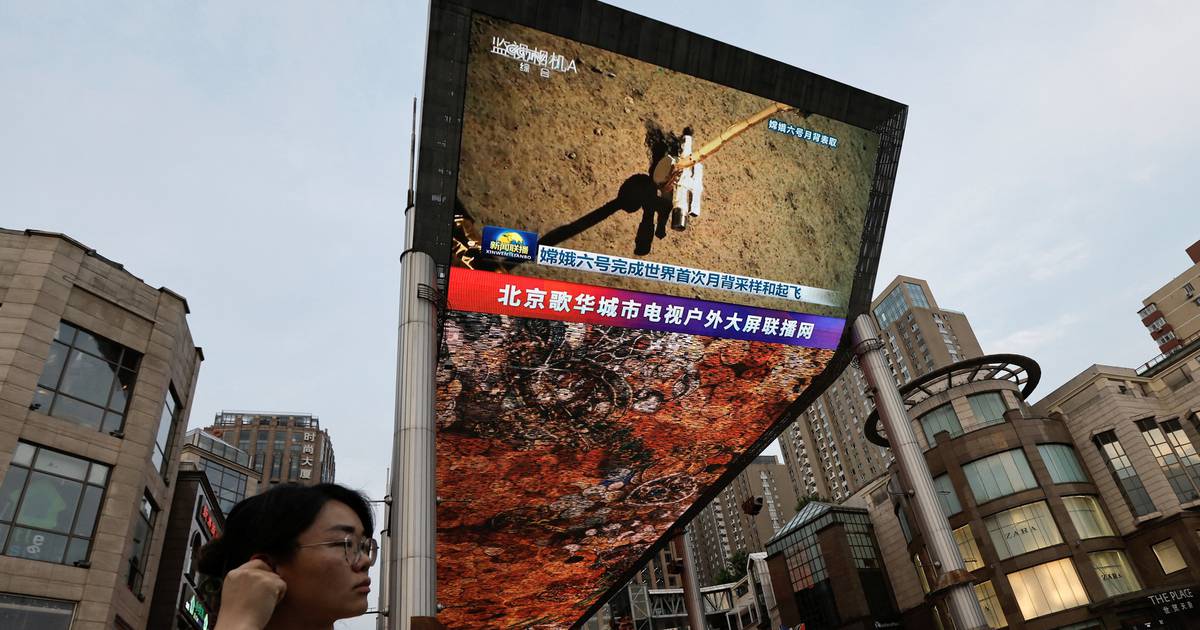China’s Chang’e-6 probe transferred on Thursday the samples it collected from the dark side of the Moon to a spacecraft in the Moon’s orbit, the state news agency Xinhua reported. After receiving the samples, the unmanned spacecraft will fly back to Earth and is expected to land in China’s Inner Mongolia region on June 25. If successful, China will become the first country to collect lunar material from the side of the moon that is permanently facing away from Earth.
The Chang’e-6 probe blasted off from the far side of the moon on Tuesday, after spending two days on the surface digging up samples.
The mission is a source of national pride in China. The probe’s launch in May attracted thousands of tourists to the southern island province of Hainan, and its every move, from landing on the dark side of the moon to returning to Earth, is viral news on Chinese social networks.
News of Thursday’s successful transfer of precious samples, which scientists hope will reveal more about the origins of the Sun’s system, comes amid growing concern in the US about progress in China’s exploration programs. Moon and space.
Asked about the Chang’e-6 mission on Wednesday, US space agency NASA chief Bill Nelson congratulated China but asked it to be more transparent about its space activities.
Nelson has repeatedly warned that the United States is in a “space race” with China to return to the Moon because China will claim any water resources it finds there as its own.
Responding to Nelson’s comments, Chinese Foreign Ministry spokesman Mao Ning said Thursday that the Chang’e-6 probe’s successful sampling and departure from the dark side of the moon represent historic steps for “humanity’s peaceful use of outer space.” ” and that many countries praised this mission.
Mao also criticized the Wolf Amendment, a law passed by the US Congress in 2011 that banned NASA from working with “China or any Chinese-owned company unless such activities are specifically authorized.”
“The current Sino-US space cooperation is facing some problems and difficulties, the main reason for this is that US domestic laws, such as the Wolf Amendment, have hindered the normal exchange and dialogue between the space agencies. agency of the two countries,” Mao said.
